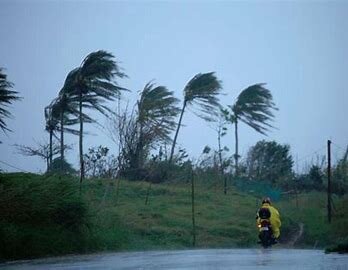Sheilla Cajayon Ysug-Lee
Zamboanga City, a vibrant and bustling metropolis in the southern Philippines, has recently been battered by a series of heavy downpours and inclement weather, leaving a trail of destruction and despair in its wake. The city’s residents, already grappling with the challenges of daily life, have been further tested by the erratic and merciless rain that has brought their lives to a standstill.
The heavy rainfall, which started last week, has caused widespread flooding and landslides, leaving thousands of people displaced, without access to basic necessities such as food, water, and shelter. The affected areas, mainly in the city’s low-lying districts and informal settlements, have been transformed into muddy quagmires, making it difficult for rescue teams to reach those in need.
The city’s infrastructure, already under strain, has been severely damaged, with reports of destroyed bridges, fallen power lines, and clogged drains. The Philippine National Railways (PNR) has been forced to suspend operations, further isolating the city from the rest of the country. The airport, a vital lifeline for the city’s economy, has also been affected, with flights grounded due to the inclement weather.
The economic impact of the heavy rainfall is expected to be significant, with losses in the millions of pesos already reported. The city’s businesses, already struggling to recover from recent economic downturns, have been dealt a devastating blow, with many forced to shut down or suspend operations. The agricultural sector, a vital contributor to the city’s economy, has also been severely affected, with crops destroyed and livestock swept away by the floodwaters.
The psychological toll of the heavy rainfall is just as significant, with many residents experiencing anxiety, fear, and helplessness in the face of the relentless rain. The city’s children, already vulnerable to the challenges of poverty and neglect, have been particularly affected, with many forced to drop out of school and fend for themselves in the midst of the chaos.
In the face of this adversity, the people of Zamboanga City have shown remarkable resilience and courage, coming together to support each other and rebuild their shattered lives. The city government, with the help of local and national authorities, has launched a massive relief effort, distributing food, medicine, and shelter to those in need.
However, more needs to be done to mitigate the effects of the heavy rainfall and ensure that the city’s residents are provided with the support they need to recover and rebuild. The government must prioritize the reconstruction of damaged infrastructure, provide financial assistance to affected businesses and individuals, and ensure that the city’s healthcare and educational systems are restored to their former glory.
Furthermore, the government and civil society must work together to address the root causes of the city’s vulnerability to natural disasters, including the lack of proper drainage systems, inadequate infrastructure, and inadequate disaster preparedness.
In conclusion, the heavy rainfall and inclement weather that has hit Zamboanga City is a sobering reminder of the city’s vulnerability to natural disasters and the need for urgent action to address these challenges. As we work together to rebuild and recover from this disaster, we must also look to the future, with a renewed commitment to creating a more resilient and sustainable city for all its residents.















